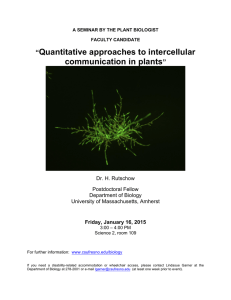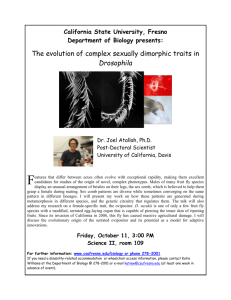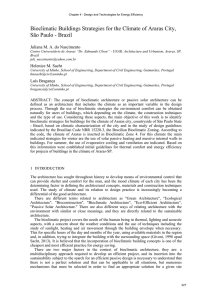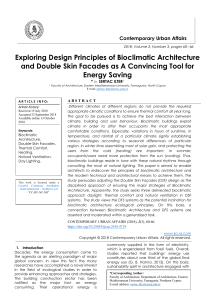An integrative approach to the study of plant diversity and diversification
advertisement
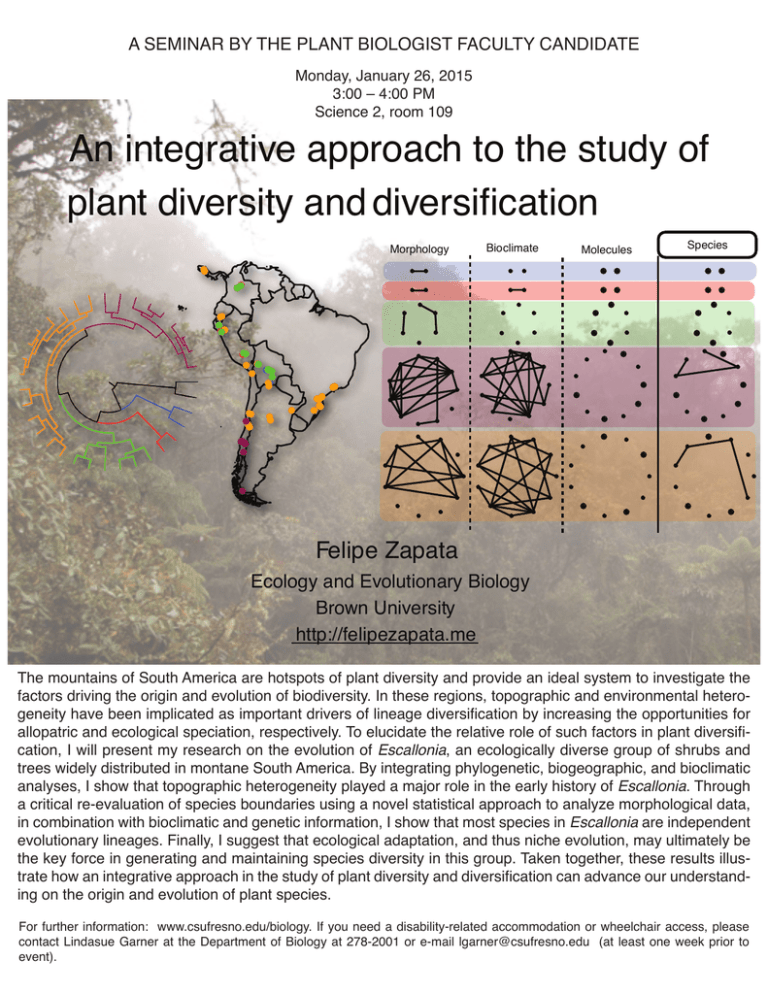
A SEMINAR BY THE PLANT BIOLOGIST FACULTY CANDIDATE Monday, January 26, 2015 3:00 – 4:00 PM Science 2, room 109 An integrative approach to the study of plant diversity and diversification Morphology Bioclimate Molecules Species Felipe Zapata Ecology and Evolutionary Biology Brown University http://felipezapata.me The mountains of South America are hotspots of plant diversity and provide an ideal system to investigate the factors driving the origin and evolution of biodiversity. In these regions, topographic and environmental heterogeneity have been implicated as important drivers of lineage diversification by increasing the opportunities for allopatric and ecological speciation, respectively. To elucidate the relative role of such factors in plant diversification, I will present my research on the evolution of Escallonia, an ecologically diverse group of shrubs and trees widely distributed in montane South America. By integrating phylogenetic, biogeographic, and bioclimatic analyses, I show that topographic heterogeneity played a major role in the early history of Escallonia. Through a critical re-evaluation of species boundaries using a novel statistical approach to analyze morphological data, in combination with bioclimatic and genetic information, I show that most species in Escallonia are independent evolutionary lineages. Finally, I suggest that ecological adaptation, and thus niche evolution, may ultimately be the key force in generating and maintaining species diversity in this group. Taken together, these results illustrate how an integrative approach in the study of plant diversity and diversification can advance our understanding on the origin and evolution of plant species. For further information: www.csufresno.edu/biology. If you need a disability-related accommodation or wheelchair access, please contact Lindasue Garner at the Department of Biology at 278-2001 or e-mail lgarner@csufresno.edu (at least one week prior to event).
